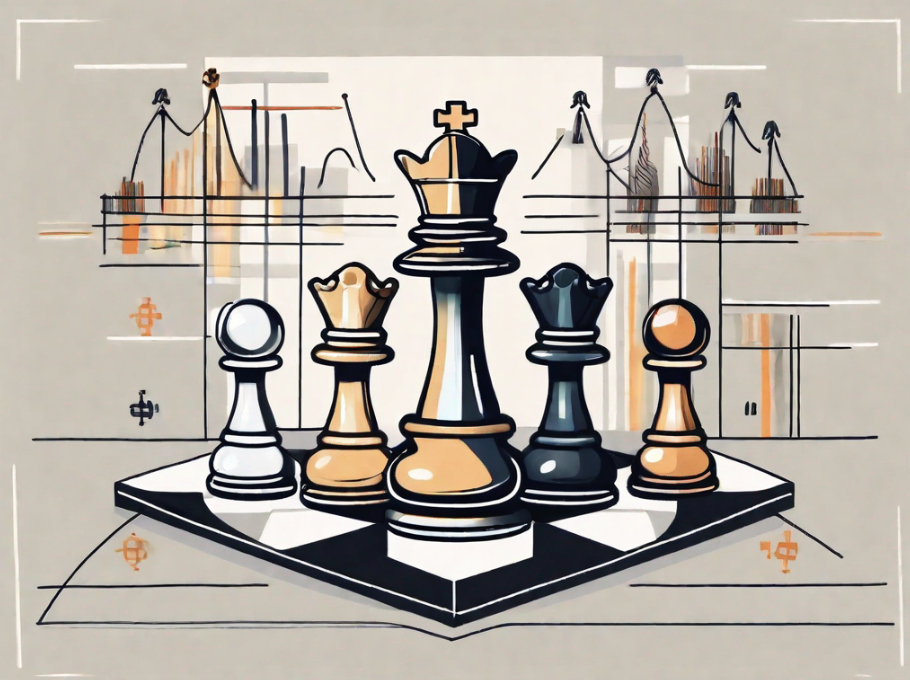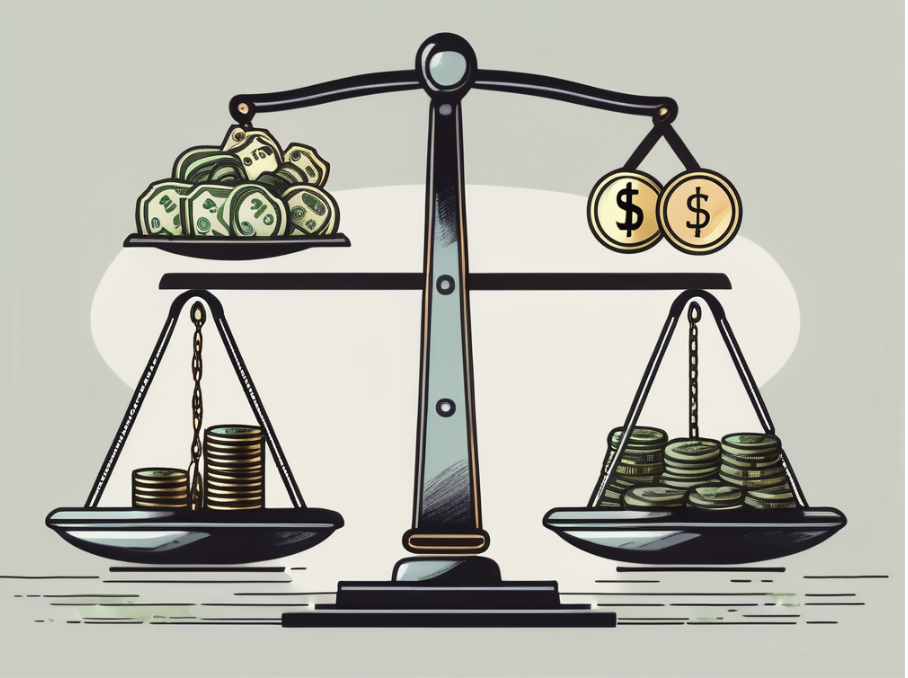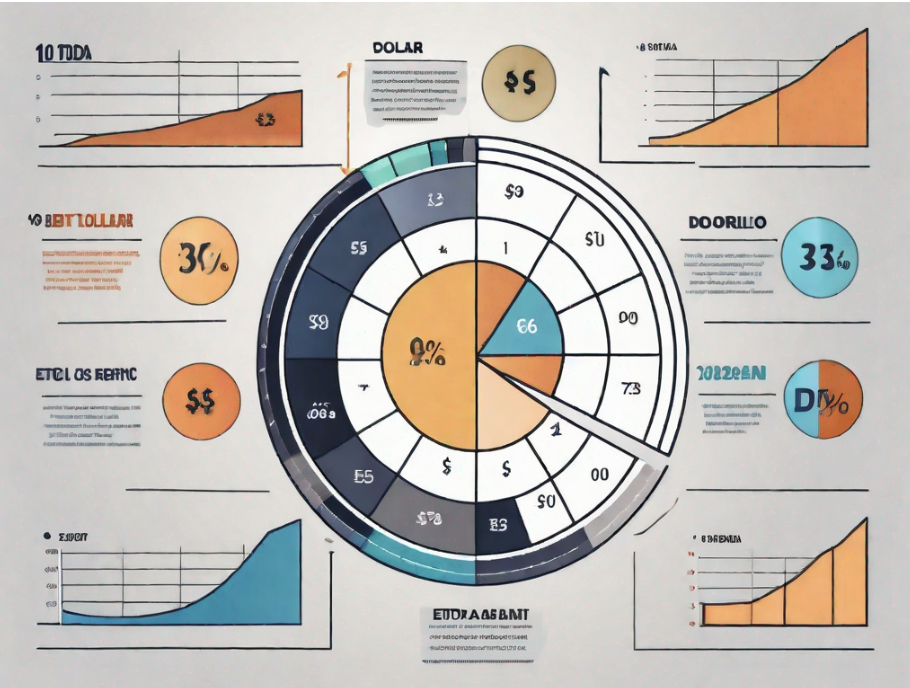How Chess Can Help You Excel in Finance and Business Development
How Chess Can Help You Excel in Finance and Business Development
Discover how the strategic mind games of chess can unlock your potential in the world of finance and business development.

Chess is a game that has been played for centuries, captivating both beginners and experts alike. It is a game of skill, strategy, and critical thinking. Surprisingly, the lessons learned from playing chess can be applied to various aspects of life, including finance and business development. In this article, we will explore how understanding the game of chess can help you excel in these fields.

Understanding the Game of Chess
Understanding the Game of Chess
Before we dive into the intricacies of chess and its applications in finance and business development, it is crucial to have a solid foundation in understanding the game itself. Chess is played on a square board divided into 64 squares of alternating colors. Each player begins with 16 pieces, including pawns, rooks, knights, bishops, a queen, and a king.
Chess is believed to have originated in northern India during the Gupta Empire in the 6th century. From there, it spread to Persia and eventually reached Europe by the 9th century. Over the centuries, chess has evolved into a complex and strategic game that continues to captivate players of all ages.
Basic Rules and Principles of Chess
Basic Rules and Principles of Chess
To play chess effectively, one must first grasp the basic rules and principles. Each piece has its unique movement pattern, and players take turns moving their pieces strategically to capture their opponent’s pieces or achieve checkmate. Understanding the rules and principles is crucial to developing a tactical and strategic mindset.
The pawn, for example, is the most numerous but least powerful piece on the board. It can move forward one square at a time, but on its initial move, it has the option to move two squares forward. Pawns capture diagonally and can be promoted to any other piece if they reach the opposite end of the board.
The rook, on the other hand, can move horizontally or vertically across the board, making it a powerful piece for controlling open files and ranks. The knight has a unique L-shaped movement pattern, allowing it to jump over other pieces. Bishops move diagonally and can control long diagonals, especially when positioned on opposite-colored squares.
The queen is the most powerful piece on the board, combining the movement patterns of the rook and the bishop. It can move horizontally, vertically, and diagonally, making it a formidable force in the hands of a skilled player. Finally, the king, while limited in its movement, is the most important piece. If the king is threatened with capture, the player is in check, and if there is no legal move to remove the threat, it is checkmate, resulting in a loss.
The Strategic Nature of Chess
The Strategic Nature of Chess
Chess is more than just a simple board game. It is a constant battle of minds, requiring players to think several moves ahead. Successful chess players develop the ability to anticipate their opponent’s moves and to formulate strategies to outmaneuver them. This strategic nature of chess aligns perfectly with the world of finance and business development.
In the world of finance, decision-making is often based on analyzing risks and rewards, just like in chess. Just as a chess player evaluates the potential consequences of each move, a financial analyst assesses the potential risks and rewards of investment decisions. Both chess and finance require a deep understanding of the current situation, a careful evaluation of available options, and the ability to make calculated decisions.
Similarly, in business development, strategic planning is crucial for success. Chess players strategically position their pieces to control the board and create opportunities for attack. In the same way, business professionals strategically position their products, services, and resources to gain a competitive advantage and maximize growth potential.
Chess has long been used as a tool for developing critical thinking skills, problem-solving abilities, and strategic planning. It teaches players to think analytically, evaluate multiple scenarios, and make decisions based on long-term goals. These skills are highly transferable to various aspects of life, including finance and business development.
Our The Dostoyevsky Package is designed to provide monthly bookkeeping + controller services to small businesses and startups and organize financials for family offices and small business projects to streamline business processes. With our services, you can Elevate Your Financial Strategy and Empower Your Accounting.


Drawing Parallels Between Chess and Finance
Drawing Parallels Between Chess and Finance
Chess and finance share several commonalities that make the game an apt metaphor for understanding financial strategies and decision-making processes. By dissecting these parallels, we can gain valuable insights that can be applied to real-world scenarios.
Risk Assessment in Chess and Finance
In both chess and finance, risk assessment plays a crucial role. Chess players continuously evaluate the risks associated with each move, considering potential sacrifices, positional advantages, and future consequences. They carefully analyze the board, weighing the potential rewards against the potential pitfalls. This parallels the world of finance, where individuals and businesses must assess the risks and rewards associated with investments and financial decisions.
Just as chess players consider the potential sacrifices they may need to make to gain an advantage, investors and financial analysts assess the potential risks they may need to take to achieve their desired financial goals. They analyze market trends, evaluate the potential returns, and consider the potential downsides before making investment decisions.
Furthermore, both chess and finance require individuals to think several moves ahead. Chess players anticipate their opponent’s potential responses and plan their moves accordingly. Similarly, in finance, individuals need to consider the long-term consequences of their decisions and plan their financial strategies accordingly.
Decision Making: Chess vs Finance
Chess is all about decision-making under pressure. Each move requires careful consideration and analysis. Chess players must evaluate various options, anticipate their opponent’s moves, and make informed choices based on the available information. This high-pressure decision-making process is not too dissimilar from the world of finance and business development.
In finance, effective decision-making skills are crucial. Financial professionals must evaluate various investment opportunities, forecast potential outcomes, and make informed choices based on the available data. They need to consider market conditions, economic trends, and potential risks before making investment decisions.
Both chess and finance demand individuals to think critically and strategically. They require individuals to analyze the current situation, consider multiple scenarios, and make calculated decisions. In both fields, the ability to think several steps ahead and anticipate potential outcomes is highly valued.
Moreover, both chess and finance involve a level of uncertainty. Chess players cannot predict their opponent’s moves with absolute certainty, just as financial professionals cannot predict market fluctuations with complete accuracy. Both fields require individuals to make decisions based on incomplete information and adapt their strategies as new information becomes available.
By examining the parallels between chess and finance, we can gain a deeper understanding of the decision-making processes, risk assessment, and strategic thinking required in both fields. These insights can be valuable in developing effective financial strategies and making informed investment decisions.
Chess is not just a game of strategy and skill; it also reflects the complex decision-making processes that CEOs face in the business world. The principles of chess strategy can be applied to various areas of business, helping CEOs navigate challenges, make informed decisions, and outsmart the competition. By understanding the link between chess and business, analyzing strategic principles, and leveraging flexibility, CEOs can develop effective tactics that lead to success.

Chess Strategies for Business Development
Chess Strategies for Business Development
Chess strategies can provide valuable insights into effective business development practices. Let’s explore a couple of key strategies that can be applied in both chess and business contexts.
Planning and Forecasting in Chess and Business
In chess, successful players plan their moves in advance, considering different scenarios and potential outcomes. They carefully analyze the board, evaluate their options, and anticipate their opponent’s moves. This strategic thinking is crucial for staying ahead in the game.
Similarly, in business development, effective planning is key to achieving success. Whether it’s developing marketing strategies, setting financial goals, or expanding into new markets, thorough planning and forecasting help identify potential challenges and opportunities. Just like in chess, businesses need to consider various scenarios and outcomes to make informed decisions.
By analyzing market trends, consumer behavior, and competitor strategies, businesses can anticipate changes and adapt their plans accordingly. This proactive approach allows them to stay ahead of the competition and seize opportunities as they arise.
Competitive Analysis Through Chess
In chess, players continuously monitor their opponent’s moves and adapt their strategies accordingly. They study their opponent’s strengths and weaknesses, looking for patterns and vulnerabilities that can be exploited. This constant analysis helps players gain an advantage and outmaneuver their opponents.
The ability to assess and analyze the competition is equally essential in business development. Understanding market trends, customer preferences, and competitor behavior allows businesses to gain a competitive edge and make well-informed decisions. By conducting thorough market research and competitive analysis, businesses can identify gaps in the market, spot emerging trends, and develop strategies to differentiate themselves.
Just like in chess, businesses need to stay vigilant and adapt their strategies based on the ever-changing market dynamics. By keeping a close eye on their competitors, businesses can identify potential threats and opportunities, adjust their marketing tactics, and position themselves strategically to attract customers.
Moreover, studying successful competitors can provide valuable insights and inspiration for innovation. By understanding what makes their competitors successful, businesses can learn from their strategies and apply similar principles to their own development.
In conclusion, chess strategies offer valuable lessons for business development. The importance of planning, forecasting, and competitive analysis cannot be overstated. By incorporating these strategies into their approach, businesses can enhance their decision-making processes, anticipate challenges, and seize opportunities for growth and success.
Applying Chess Tactics in Financial Management
Applying Chess Tactics in Financial Management
Tactics are an integral part of chess, and applying them to financial management can yield positive results. Let’s delve into a couple of key tactics and their financial applications.
Resource Allocation: Chess Pieces and Financial Assets
In chess, players allocate their pieces strategically to control the board and maximize their chances of success. Similarly, in financial management, individuals must allocate their assets wisely to achieve optimal returns. This entails diversifying investments, minimizing risk, and striking a balance between short-term gains and long-term goals.
Chess Openings and Financial Opportunities
Chess openings are a series of initial moves that set the stage for the rest of the game. Similarly, in financial management, recognizing and capitalizing on potential opportunities is crucial. By staying informed about market trends, emerging industries, and technological advancements, individuals and businesses can position themselves advantageously to seize financial opportunities.
The Psychological Aspects of Chess in Business
The Psychological Aspects of Chess in Business
Chess is not solely a game of strategy; it also plays on the psychology of the players. The mental fortitude required for chess can be directly applied to the world of business.
Patience and Perseverance in Chess and Business
Chess requires immense patience and perseverance. Players must think carefully, adapt to their opponent’s moves, and never give up. Similarly, in business, challenges and setbacks are inevitable. The ability to remain patient, persistent, and resilient in the face of adversity can lead to long-term success.
Chess, Confidence, and Business Negotiations
In chess, players must exude confidence to intimidate their opponents without being overconfident and making mistakes. This delicate balance is also critical in business negotiations. Exhibiting confidence ensures credibility, while maintaining humbleness and openness to collaboration can lead to positive outcomes.

Conclusion
In conclusion, the game of chess offers valuable lessons that can be applied to finance and business development. By understanding the game, recognizing the parallels, and applying chess strategies and tactics, individuals and businesses can enhance their decision-making skills, strategic thinking, and overall success. So, the next time you face a business challenge or financial decision, it might be worth considering the lessons from the chessboard.
It All Starts With a FREE consultation!
Every client’s needs are unique and require varying amounts of time and attention. You can use this form to let us know what you’re looking for, and we’ll reach out to you to schedule an appointment and talk about rates for your business needs.
Please be as detailed as possible with what work is needed, what industry your business is in, and where you are located.
Our team will contact you with in 2 business days to set up the first meeting. We will make sure all your needs are taken into account when selecting the package and type of services you need.






Stay In Touch